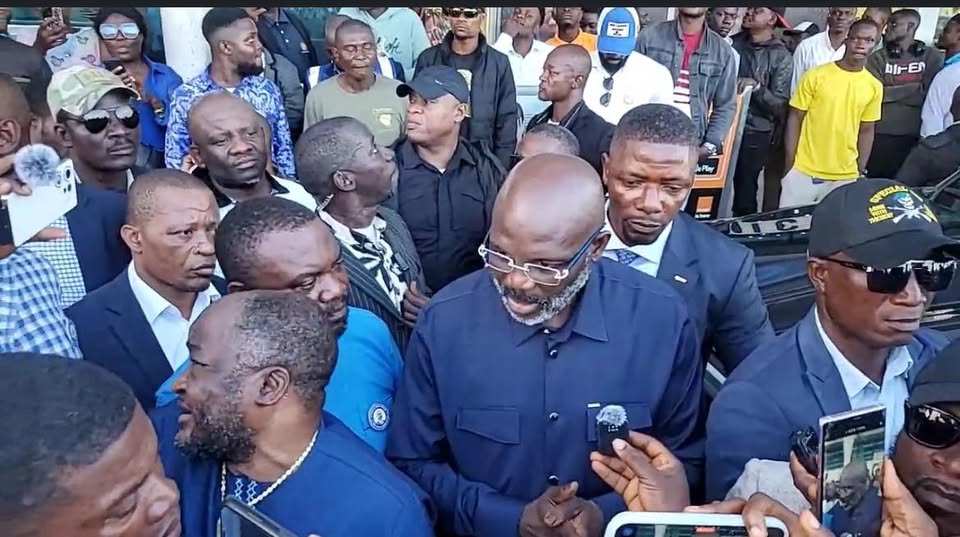Former Liberian President George Weah returned to his homeland on Monday, September 22, 2025, after an extended stay in the United States, met by a jubilant crowd of supporters at Roberts International Airport. Weah’s arrival signaled his renewed commitment to challenging the incumbent President Joseph Boakai in the upcoming 2029 election. Weah, who narrowly lost the previous election to Boakai, emphasized his intention to “sustain the political fight” and “restore everything,” suggesting a comprehensive challenge to the current administration’s policies and performance. The enthusiastic welcome from his supporters underscored the continued resonance of his political message. His supporters voiced discontent over the prevailing economic hardships and the rise of drug abuse, placing their hope in Weah’s return to power.
Weah’s return address focused on peace and unity, urging his followers to remain civil despite a recent clash between his supporters and the Liberia National Police at the airport. He called for calm and reiterated his commitment to a peaceful political process. Addressing the recent demolition of the CDC headquarters, allegedly orchestrated by the government, Weah assured his supporters that he would rebuild the party headquarters and restore its prominence. This symbolic gesture served to bolster his supporters’ morale and reinforce their belief in his leadership. He called on them to maintain their faith in him and resist being swayed by what he depicted as the government’s attempts to discourage them.
The former president positioned his return as a pivotal moment for the CDC and the country. He framed his political ambitions within a broader narrative of service to the people, emphasizing the CDC’s historical role and ongoing commitment to fighting for their interests. He portrayed the CDC not merely as a political party but as a movement dedicated to creating a better future for Liberians. His words aimed to reignite the spirit of hope and purpose within his party and to present a compelling alternative to the current administration.
CDC Chairman Janga Kowo echoed Weah’s sentiments, highlighting the widespread enthusiasm surrounding the former president’s return and expressing confidence in his eventual return to power in 2029. Kowo’s remarks further emphasized the perceived failures of the Boakai administration, including the alleged destruction of the CDC headquarters, using these issues as rallying points to galvanize support for Weah’s candidacy. He directly linked these perceived failures to a renewed sense of purpose and determination within the CDC.
Weah’s strategy appears centered on capitalizing on public dissatisfaction with the Boakai administration, portraying himself as a viable alternative capable of addressing the nation’s pressing issues. By focusing on themes of unity, restoration, and unwavering commitment to the people, he seeks to consolidate his support base and project an image of strong and resolute leadership. The enthusiastic reception he received upon his return suggests that his message resonates with a significant segment of the population. His challenge lies in translating this enthusiasm into concrete political gains in the lead-up to the 2029 elections.
The political landscape in Liberia appears poised for a renewed period of intense competition. With Weah’s return, the lines are drawn for a potential showdown with the incumbent Boakai. The clashing narratives, accusations of government misconduct, and the rallying cries of both sides suggest a highly charged political atmosphere in the years leading up to the next presidential election. The demolition of the CDC headquarters serves as a potent symbol of the escalating tensions and foreshadows a potentially contentious political landscape. The outcome of this ongoing power struggle will undoubtedly shape the future of Liberia.














